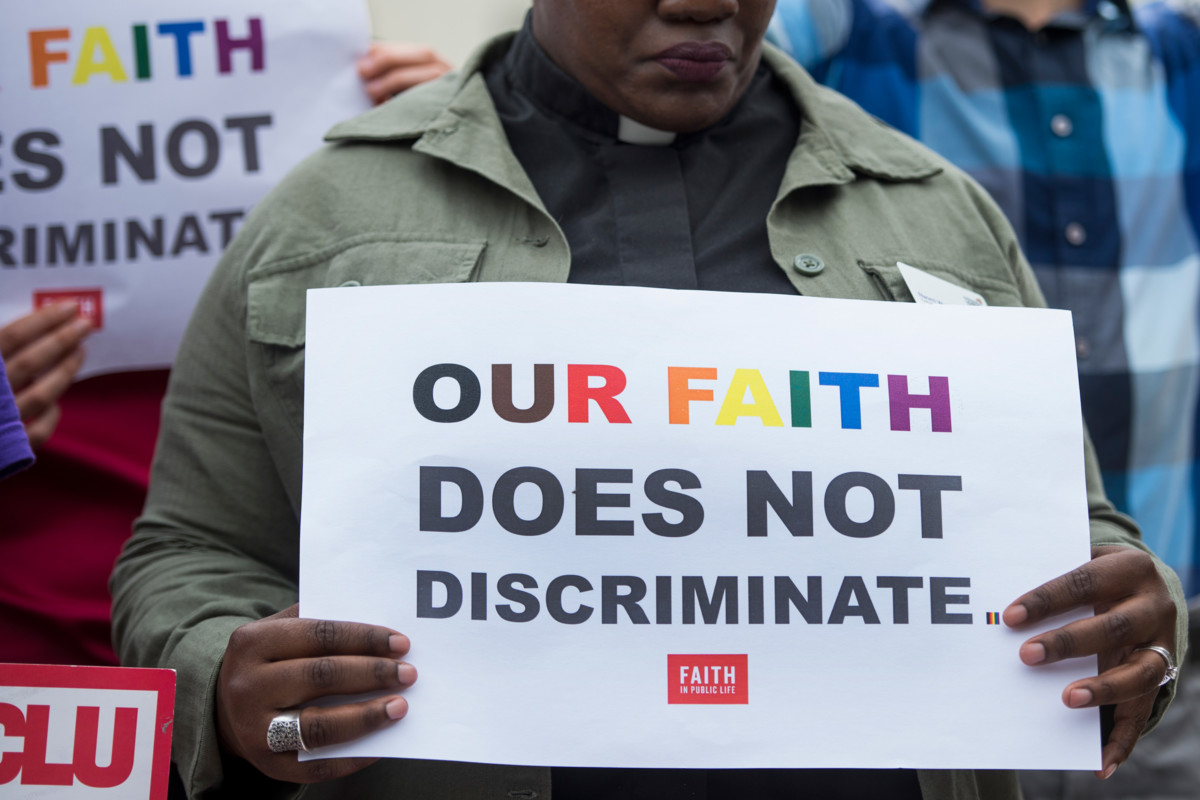Federal contractors, who stand to make billions in taxpayer money by providing a variety of services to the government, are subject to strict and labyrinthine rules surrounding business practices. In some cases, these rules are actually more stringent than those under state and federal law for private sector employers — for example, contractors are required to aggressively pursue and hire disabled employment candidates.
Under the Trump administration, however, many requirements around diversity and inclusion, as well as nondiscrimination, are being quietly discarded.
Most recently, the Department of Labor issued a directive effectively encouraging contractors to discriminate against LGBTQ people on the grounds of religious beliefs. According to this document, religious businesses — and let’s be clear, they mean Christian businesses — should feel free to discriminate in hiring and firing practices.
“Recent court decisions have addressed the broad freedoms and anti-discrimination protections that must be afforded religion-exercising organizations and individuals,” the directive states, in simultaneously bland and galling phrasing that suggests being required to stop discriminating against people is itself discrimination.
The directive goes on to erroneously namecheck the Masterpiece Cakeshop decision in its justification of bigotry and references “recent executive orders” which have repeatedly bolstered so-called “religious conscience” objections.
This represents a radical shift from the agency’s recent historical stance on LGBTQ discrimination. The agency used to affirm that it was legal to “favor individuals of a certain religion” in employment decisions, but noted that anti-discrimination protections were still very much in play. In other words, a Christian-owned contractor could preferentially hire Christians, but he or she could not discriminate against LGBTQ people in employment practices. Now, that guidance has been quietly removed.
This policy joins a larger body of legislation and caselaw affirming a “right to discriminate,” taking a huge step back from decades of civil rights advocacy. Many of these cases revolve around “religious freedom,” which again is specifically focused on Christians — especially conservative Christians. There’s even a “Religious Liberty Task Force” charged with upholding the right to use religion as an excuse for hateful behavior.
In the guise of “religious freedom,” bigots insist that discrimination should be allowable, because being obliged to hire, serve or work with people who aren’t like them would violate their religious beliefs. This religious exemption opens the door to a variety of discriminatory behaviors in the workplace. It bears noting that Jesus didn’t object to being hung on the Cross alongside two thieves, so surely allowing a lesbian in the mailroom won’t ruin the sanctity of a Christian business.
Using vague language is also very much by design. By keeping the guidance as broad as possible, the agency opens up numerous loopholes to exploit. Should a contractor be challenged on discriminatory behavior, it can fall back on the defense that the guidance isn’t specific, so they aren’t doing anything wrong. Meanwhile, people attempting to file suit have nothing to point to when they feel they’ve experienced discrimination.
This kind of discriminatory policy is frustrating and infuriating at the best of times. But in this case, it comes with an added sting: Our tax dollars pay federal contractors.
That means that everyone in the US is paying companies to discriminate, including LGBTQ people. This guidance will affect millions of people across the United States, with federal contractors making up a large chunk of the economy and including numerous big names in industry, like Lockheed Martin.
The Department of Labor has said it will follow this guidance with rulemaking. While that would provide Americans with a chance to weigh in on any attempt to enshrine discriminatory practices into the law, it’s important to stay alert, because the period for public comment will likely be short.
We have 9 days to raise $50,000 — we’re counting on your support!
For those who care about justice, liberation and even the very survival of our species, we must remember our power to take action.
We won’t pretend it’s the only thing you can or should do, but one small step is to pitch in to support Truthout — as one of the last remaining truly independent, nonprofit, reader-funded news platforms, your gift will help keep the facts flowing freely.
